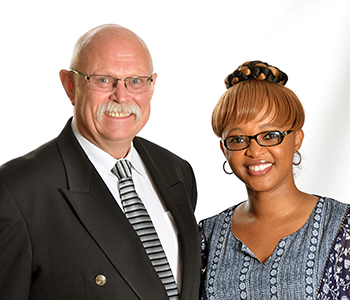Latest News Archive
Please select Category, Year, and then Month to display items
12 October 2020
|
Story Arina Engelbrecht
|
Photo Supplied
 Arina Engelbrecht from Organisational Development and Employee Well-being believes physical activity has a number of benefits for one’s health, including stress relief.
Arina Engelbrecht from Organisational Development and Employee Well-being believes physical activity has a number of benefits for one’s health, including stress relief.
Being physically active plays a big role in preventing the development of mental-health problems and in improving the quality of life of people experiencing mental-health problems.
Treatment for depression
Physical activity can be an alternative treatment for depression. It can be used as a stand-alone treatment or in combination with medication and/or psychological therapy. It promotes all kinds of changes in the brain, including neural growth, reduced inflammation, and new activity patterns are formed that promote feelings of calm and well-being. It releases endorphins – powerful chemicals in the brain that energise your spirit and make you feel good.
Physical activity can be very effective in relieving stress. Research in adults has found that physically active individuals tend to have lower stress levels compared to individuals who are less active. It also leads to improved sleep. When a person sleeps better and feels more rested, overall quality of life improves. They cope better with daily life stressors.
Reduce Alzheimer's risk
Regular physical activity can reduce your risk of developing Alzheimer's disease by up to 50%. It can also slow down further deterioration in those who have already started to develop cognitive problems. It stimulates the brain’s ability to maintain old connections as well as to make new ones.
A study asked people to rate their mood immediately after periods of physical activity (e.g. going for a walk/run, cycling, doing housework) and periods of inactivity (e.g. reading a book or watching television). Researchers found that participants felt more content, more awake, and calmer after being physically active compared to after periods of inactivity.
In conclusion, people who are physically active feel a sense of well-being, feel more energetic throughout the day, sleep better at night, have sharper memories, and feel more relaxed and positive about themselves and their lives.
“Being physically active not only changes your body, it changes your mind,
attitude, and your mood.” – Arina Engelbrecht
UFS Council elects new Chairperson
2017-01-27

Mr Willem Louw, new Chairperson of the Council
of the University of the Free State, and Dr Nthabeleng
Rammile, new Vice-Chairperson.
Photo: Stephen Collett
The Council of the University of the Free State (UFS) elected Mr Willem Louw as the new Chairperson during a special meeting on Friday 20 January 2017. He was Vice-Chairperson of the Council since 13 March 2015. Dr Nthabeleng Rammile was elected Vice-Chairperson at the same meeting, making her the first woman in the history of the university elected to this position.
The election of Mr Louw comes after the announcement by Justice Ian van der Merwe at a Council meeting on 2 December 2016 that he will be stepping down as Chairperson on 31 December 2016.
Mr Louw has served on the Council since 11 September 2009 and was elected as member of the Executive Committee of the Council on 18 November 2011. He furthermore serves on the Council’s subcommittees for Audit and Risk Management, and Honorary Degrees.
In accepting his election as Chairperson, Mr Louw said that he appreciates the trust Council has bestowed on him. “It is a privilege and honour to lead Council and I look forward to the challenge. With the support of Dr Rammile and the rest of the Council, I endeavour to ensure that the university management is assisted in the governance of the university and that the Council plays its governance role fully at all times,” he said.
“The UFS is privileged to have Mr Louw and Dr Rammile leading its Council at such a crucial time in the South African higher-education sector. Their combined experience will be of great benefit to the university community,” said Prof Nicky Morgan, Acting Vice-Chancellor and Rector of the UFS.
Mr Louw is an Associate of the Transnet Centre for Business Management of Projects at the University of Stellenbosch Business School and a non-executive Director of Group Five Limited. He was previously Managing Director of the technology business unit and a member of Group Management at Sasol, where he worked from 1985 until 2011. He is a member of the South African Council for the Project and Construction Management Professions and a Fellow of the South African Academy of Engineering. Mr Louw received his Bachelor’s and Master’s degrees in Civil Engineering from Stellenbosch University and his MDP (Management Development Programme in Project Management) from UNISA. He is currently enrolled for a PhD in Business Management and Administration at the University of Stellenbosch Business School.
Dr Rammile has served on the Council as representative of the religious communities since 1 January 2016. She is also member of the Council subcommittees for Audit and Risk Management, and Naming. She obtained a PhD in Brand Management at the UFS, where she also lectured in the Department of Business Management from 2003 to 2014. She is a pastor at Global Reconciliation, where she is responsible for women’s ministry, community outreach projects, and multimedia.
Mr Louw will serve as Chairperson of Council until 31 December 2018, and Dr Rammile will serve as Vice-Chairperson until 12 March 2018.
Released by:
Lacea Loader (Director: Communication and Brand Management)
Telephone: +27 51 401 2584 | +27 83 645 2454
Email: news@ufs.ac.za | loaderl@ufs.ac.za
Fax: +27 51 444 6393